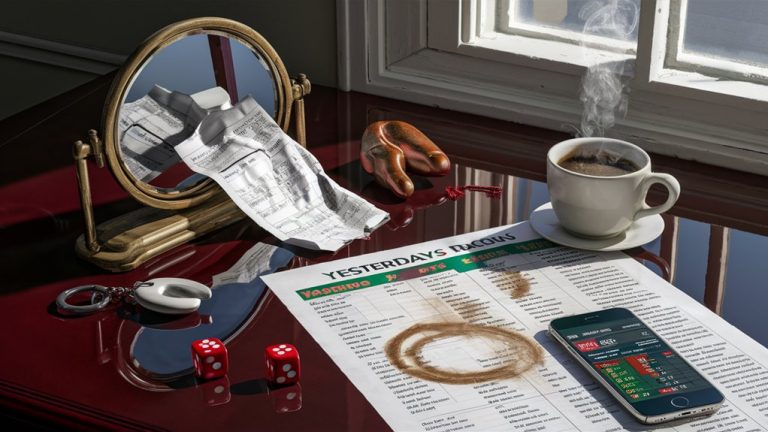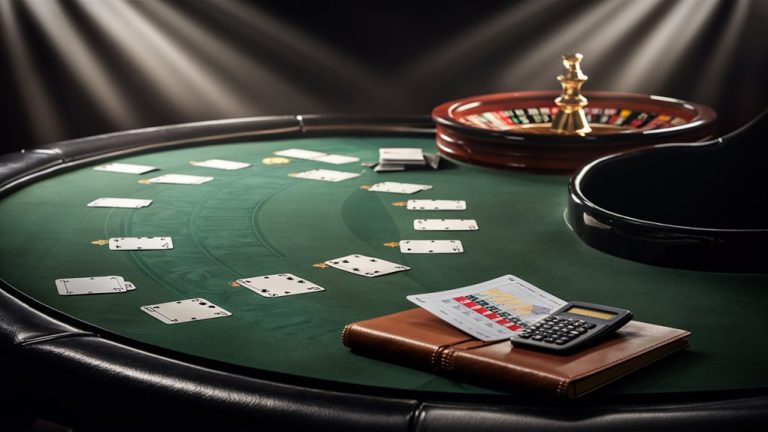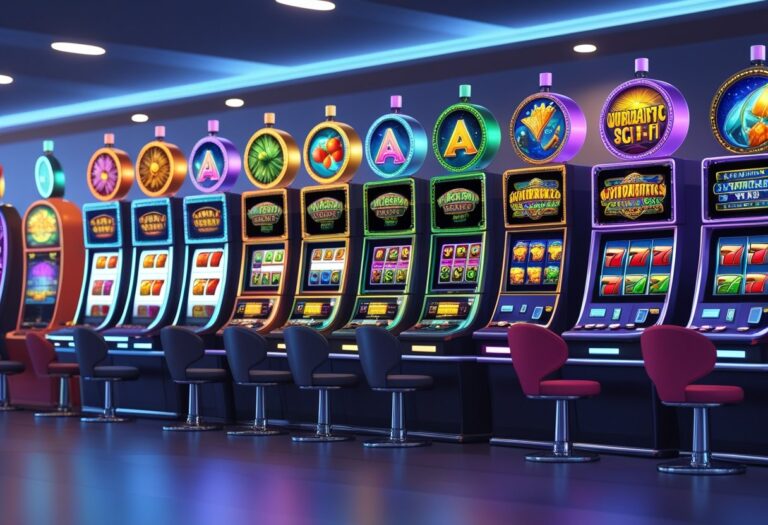
Professional and Amateur Contrasts
Legendary professional gamblers like Archie Karas show how strict strategies can turn millions of dollars into purses. But cases like that of Terrance Watanabe are altogether different, demonstrating the effects of losses driven by emotional thinking.
Expert Thinking vs. Foolish Gambles
The basic difference is that professional poker players return on investment with calculated decisions, where perfect discipline is mandatory. They follow Elevating Smoky, Dull Scenes to Towering Final Impacts strict internet banking rules and notice amazing results. Professional players today implement:
- Strict bankroll management
- Performance tracking systems
- Risk assessment protocols
- Statistical analysis
Pitfalls and Trouble of the Amateur Player
Recreational players tend to make:
- Rush betting decisions
- Wagers driven by emotion
- Badly managed finances
- Chasing losses
Realizing these contrasting approaches is indispensable for anyone considering high-stakes gambling. Success only comes from treating gambling as a business governed by well-founded discipline, not merely exchanging money for entertainment.
The Psychology Behind Big Bets
The Psychology of Big Bets
How the Brain Acts
High-stakes gambling choices depend on a mix of brain chemistry and risk-taking behavior. The expectation of potential rewards sets off a huge dopamine release, which is a neurological reward almost as intense as the thrill of victory itself. This strong brain chemistry reaction could explain continued betting behavior even after a long series of defeats.
The Illusion of Controlling
The illusion of controlling drives people to bet large sums, often in subtle ways. Bettors create complex wagering rituals and superstitious practices, hoping that these will affect the output. This misplaced sense of control results in increasing risk tolerance and increasingly dangerous betting patterns.
Underlying Psychological Forces
Status and Social Confirmation
High-stakes gambling environments mirror basic human needs for status and validation. In the exclusive setting of VIP gambling rooms, first-class treatment becomes a powerful reinforcement mechanism. The combination of social prestige and neurological stimulation leads into a vicious circle, which is especially compelling.
The Dopamine Reward and Psychology of Risk
When dopamine-driven rewards mix with psychological validation, it can lead players into unhealthy patterns. This often takes the form of loss chasing, where gamblers seek the next high to recoup losses, usually causing significant personal harm.
Breaking the Pattern
Understanding these mental triggers is crucial for identifying and dealing with problem gambling behaviors. The mix of neurological responses with psychological reinforcement creates addictive patterns that require targeted intervention strategies.
Gambles with the Largest Ties
Famous Scenes from Gambling History and Fable
History’s Most Unbelievable Casino Runs
Archie Karas’ streak is one of gambling’s most astonishing stories. Over a three-year stretch in Las Vegas, fifty dollars turned into forty million dollars, a feat that stunned the entire world of high-stakes betting. This amazing feat, known as “The Run,” proves the possibilities of high-stakes gambling.
The Kerry Packer Experience
Packer’s huge bets are legendary. His 1995 victory at the MGM Grand in Las Vegas netted him twenty million dollars, one of the biggest casino wins ever. But his subsequent twenty-eight million dollar loss at Aspinalls Club in London showed the unforgiving nature of high-stakes gambling.
Tales of High-Stakes Gambling’s Strains
Terrance Watanabe’s loss of 127 million dollars in 2007 is one of gambling’s most sobering stories. This amount represented 5.6% of the annual earnings of his Las Vegas Harrah’s enterprise, underscoring the potential ruinous effects of unchecked gambling. Stu Ungar, a World Series of Poker champion, is an unadorned reminder that high-stakes gambling kills people, regardless of skill level or luck.
The Dynamics and Consequences of High-Stakes Gambling
These famous tales show that high-stakes gambling is dangerous for even experienced players. No matter their skill level or wealth, these individuals risk serious trouble. The consistent lesson is that extraordinary skill and early success do not protect against financial risk and harm in high-stakes gaming.
Trouble at the Casino Gate

Behavioral Warning Signs of Problem Gambling
Before a major loss, individuals may begin to Igniting Bubbly Calm With Passionate House Overthrows gamble more frequently, spending more time and money. Recognizing these warning signs can prevent great loss and personal destruction. Some danger signals include:
- Spending more time gambling
- Gambling larger sums of money to win back losses
- Getting into trouble over gambling and lying about it
- Borrowing money to continue betting
Emotional and Psychological Alarm Bells
Emotional signs include:
- Irritability when trying to cut down
- Obsessive thoughts about gambling
- Gambling as a way to escape problems
- Depression or anxiety from gambling
Financial Warning Flags
Financial danger signs include:
- No savings
- Maxed out credit cards
- Selling assets to fund gambling
- Hidden debts
- Secret bank statements
Effects on Relationships
Relationship disruptions can involve:
- Neglecting family duties
- Truancy from work
- Avoiding social activities
- Losing personal contacts
Signs of Emergency
Seek immediate professional help if noticing:
- Feelings of helplessness
- Suicidal thoughts
- Overwhelming financial pressure
- Difficulty controlling the urge to gamble
These signs must be addressed immediately by professionals, even before a full addiction develops.
Pro Gamblers vs. Going It On Your Own
Professional Gamblers vs Amateur Players: Basic Differences
The Basic Philosophy of Gambling
Professional gamblers treat gambling Reining in Curved Rival Tics for Swift Pot Domination as a business, with a careful strategy and constant adjustment. They stick to their well-thought-out plan and use past betting data to improve their decisions. In contrast, amateurs make impulsive, emotional bets without careful analysis.
Strategic Differences and Decision-Making Abilities
Amateurs often gamble on impulse and emotion rather than rational analysis. Professional gamblers specialize in specific games, studying them thoroughly and applying proven strategies.
Risk Management in High-Stakes Play
Risk Management in Casino Play
To succeed as a high-roller gambler, you must specialize in a single game, learning everything about it. Pros develop strategies and bankroll management routines to protect their stake and manage risks.
Essential Casino Risk Management Strategies
- Set strategic bankroll limits
- Stick to a strict 5% maximum bet rule
- Track performance through statistical analysis
Advanced Bankroll Segmentation
Segment your bankroll to avoid going broke at one game. This approach allows for playing different games at various levels without the risk of financial ruin.
Professional Loss Management
When experiencing a bad streak, do not increase your bets to recover losses. Instead, wait until the situation improves or find other ways to adjust.
Time-Based Risk Controls
Set predetermined time limits for your gambling sessions to avoid losing focus and personal disruption. Knowing when to stop is crucial for maintaining a strategic 먹튀검증업체 edge.
Strategic Performance Optimization
Evaluate your bets based on proven risk strategies, and avoid getting attached to winning streaks or making decisions based on short-term results.
The House Edge Factor
The Mathematical Foundation for Casino Advantage
The house edge is a basic principle of casino games that gives casinos an inherent advantage. Understanding the house edge helps players make informed decisions.
Decomposing House Edge Percentages
Different games have different house edges:
- Roulette: 5.26%
- Blackjack: 0.5% if played optimally
- Keno: 20-40%
The Mathematical Reality of Casino Gaming
The house edge is a mathematical constant, and while short-term variance may yield wins, the long-term odds favor the casino.
Your It Card for Casino Gaming Strategy
Key considerations for responsible play:
- Set strict loss limits
- Recognize the house edge
- Calculate the equivalent worldwide loss effect
- Maintain discipline in long play sessions






